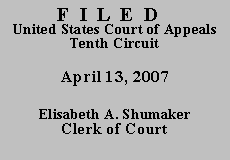

| UNITED STATES OF AMERICA,
Plaintiff-Appellee, v. EUSEBIO MONTALVO-MALDONADO, Defendant-Appellant. |
|
Under Hahn, we consider "(1) whether the disputed appeal falls within the scope of the waiver of appellate rights; (2) whether the defendant knowingly and voluntarily waived his appellate rights; and (3) whether enforcing the waiver would result in a miscarriage of justice." Id. at 1325. The miscarriage-of-justice prong requires the defendant to show (a) his sentence relied on an impermissible factor such as race; (b) ineffective assistance of counsel in connection with the negotiation of the appeal waiver rendered the waiver invalid; (c) his sentence exceeded the statutory maximum; or (d) his appeal waiver is otherwise unlawful. Id. at 1327. The government's motion addresses all of these considerations, explaining why none of them undermine defendant's appeal waiver. Upon review of the pertinent plea and sentencing materials, we agree.
Defendant "does not dispute that his plea, along with his waiver of appeal rights, was knowingly and voluntarily entered" and that "[t]his appeal falls within the terms of the appeal waiver he accepted in exchange for . . . promises in th[e] plea agreement." Memo. in Opposition to Motion to Dismiss, at 1. His only argument in response to the government's motion is that "a miscarriage of justice will occur if this appeal is dismissed . . . because of the lengthy sentence of 30 months." Id. at 2. He objects that the sentence "was based solely upon the district court's adoption of the sentencing guideline recommendation, without significant explicit consideration of other sentencing factors listed in 18 U.S.C. [§ 3553], including the facts [that] . . . [he] is a parent of three children who live in this country, and has not had any criminal history since 2002." Memo. in Opposition to Motion to Dismiss at 2.
Such sentencing objections, however, do not establish that enforcement of the appeal waiver would be unlawful, which is the focus of the miscarriage-of-justice inquiry. See Hahn, 359 F.3d at 1329. Unless undercut by an error that "seriously affect[s] the fairness, integrity, or public reputation of judicial proceedings," an appeal waiver is enforceable. Id. at 1327. No such error has been raised here.
The government's motion is GRANTED and the appeal is DISMISSED. The mandate shall issue forthwith.
ENTERED FOR THE COURT
PER CURIAM
*. This panel has determined unanimously that oral argument would not materially assist the determination of this appeal. See Fed. R. App. P. 34(a)(2); 10th Cir. R. 34.1(G). The case is therefore ordered submitted without oral argument. This order and judgment is not binding precedent, except under the doctrines of law of the case, res judicata, and collateral estoppel. It may be cited, however, for its persuasive value consistent with Fed. R. App. P. 32.1 and 10th Cir. R. 32.1.